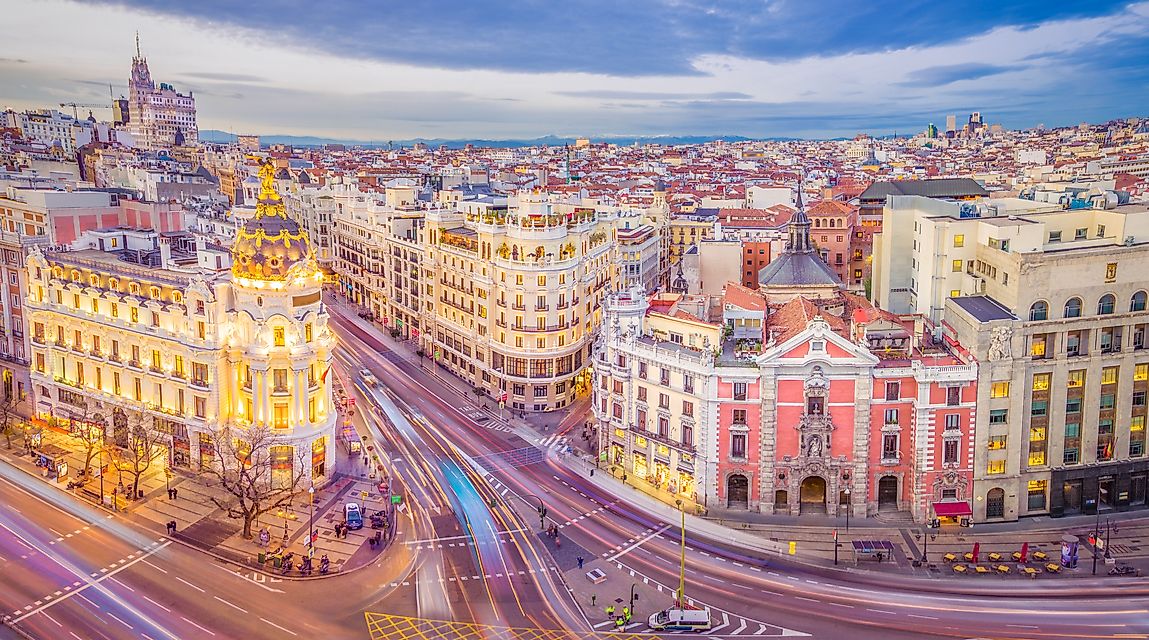What Continent Is Spain In?

Spain is a country located in the south-western region of Europe. The country is part of Europe's Iberian Peninsula, which it shares with Portugal, Andorra, and part of France. Spain also consists of two large archipelagos, the Canary Islands, the Balearic Islands, several small islands in the Alboran Sea, as well as Melilla and Ceuta, which are autonomous cities located in mainland Africa. Spain is an intercontinental country, as it borders Morocco in Africa, making it the only country in continental Europe to share a boundary with an African country. The country covers an area of about 195,360 square miles, ranking fourth in size among European nations, and had a population of approximately 46.56 million in 2016. Madrid is the capital and the country's largest city. Spain is a constitutional monarchy led by King Felipe VI. Spain is categorized as a Latin country, whereby Roman traditions been very influential in the country's culture.
International Membership
Spain is a member of the European Union (EU), Council of Europe (CoE), United Nations (UN), World Trade Organization (WTO), Organization for Security and Co-operation in Europe (OSCE), North Atlantic Treaty Organization (NATO), Organisation for Economic Co-operation and Development (OECD), Schengen Area, as well as several other organizations. Although Spain is not a member of the G20, it has a permanent invitation to annual G20 summits. Spanish is the official language throughout the entire country, although there are multiple co-official languages that vary by region: Basque, Galician, Catalan, and Valencian.
Economy of Spain
Spain has a mixed capitalist economy which ranks fifth in Europe. According to the World Bank, the country is a high-income economy. The service industry contributes to around 70% of the country's GDP, followed by industry (14.1%), construction (9.9%), and agriculture (4.5%). Spain's tourism industry ranks second globally, and the headquarters of the World Tourism Organization are located in Madrid. The country is among the biggest producers of wine and olive oil. The country’s unemployment rate stood at 17.2% in 2017. Spain is a top producer in renewable energy, and is the leading wind energy producer in Europe. The country has the largest high-speed rail network in Europe, covering 2,174.80 miles, making it the second largest in the world. Spain's high-speed train is the fastest in the world, while Japan's bullet train and France's TGV rank second and third, respectively. Barcelona has hosted the Mobile World Congress since 2006. Spain’s 2018 nominal GDP is estimated to reach $1.360 trillion with a GDP per capita expected to stand at $29,800. The World Health Organization ranked Spain’s healthcare system at seventh in the world. Healthcare is free to all Spanish citizens, and so is education for children aged six to 16.
Europe
Europe is a continent in the north-eastern hemisphere and has a land surface area of 3.93 million square miles. The continent covers 6.8% of the Earth’s land area and consists of 50 autonomous states, six partially recognized states, and four dependencies. European colonial powers at one time ruled countries in Africa, Americas and most of Asia. The largest cities in Europe include London, Istanbul, Moscow, Paris, and Madrid. Europe is the wealthiest continent and has the largest global economy. The continent’s nominal GDP in 2016 was $19.7 trillion and its PPP was $25.9 trillion.











